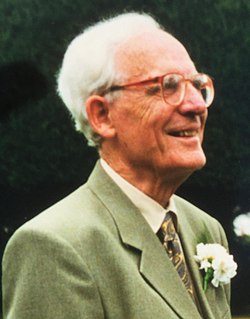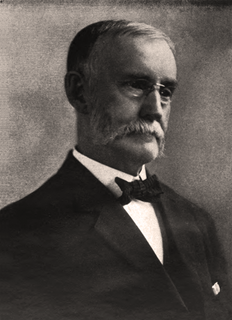A Quote by Thomas Merton
?"Our job is to love others without stopping to inquire whether or not they are worthy.
Related Quotes
In the upshot there is only one answer for the preacher who wonders whether he is worthy to preach the sermon he has composed or for the writer who wonders whether he is worthy to write the religious book he is working on. The answer is: Of course not. To ask yourself: Am I worthy to perform this Christian task? is really the peak of pride and presumption. For the very question carries the implication that we spend most of our time doing things we are worthy to do. We simply do not have that kind of worth.
As he loves us, he would have us love others. We say men are not worthy of such friendships. True, they are not. Neither are we worthy of Christ's wondrous love for us. But Christ loves us-not according to our worthiness-but according to the riches of his own loving heart! So should it be with our giving of friendship-not as the person deserves-but after the measure of our own character.
If we don't love ourselves, we would not love others. When someone tell you to love others first, and to love others more than ourselves; it is impossible. If you can't love yourselves, you can't love anybody else. Therefore we must gather up our great power so that we know in what ways we are good, what special abilities we have, what wisdom, what kind of talent we have, and how big our love is. When we can recognize our virtues, we can learn how to love others.
What deep and worthy love is so, whether of woman or child, or art or music. Our caresses, our tender words, our still rapture under the influence of autumn sunsets, or pillared vistas, or calm majestic statues, or Beethoven symphonies all bring with them the consciousness that they are mere waves and ripples in an unfathomable ocean of love and beauty; our emotion in its keenest moment passes from expression into silence, our love at its highest flood rushes beyond its object and loses itself in the sense of divine mystery.
I can't say when you'll get love or how you'll find it or even promise you that you will. I can only say you are worthy of it and that it's never too much to ask for it and that it's not crazy to fear you'll never have it again, even though your fears are probably wrong. Love is our essential nutrient. Without it, life has little meaning. It's the best thing we have to give and the most valuable thing we receive. It's worthy of all the hullabaloo.
We cannot know whether we love God, although there may be strong reason for thinking so; but there can be no doubt about whether we love our neighbor or not. Be sure that, in proportion as you advance in fraternal charity, you are increasing your love of God, for His Majesty bears so tender an affection for us that I cannot doubt He will repay our love for others by augmenting, and in a thousand different ways, that which we bear for Him.
As long as we observe love for others and respect for their rights and dignity in our daily lives, then whether we are learned or unlearned, whether we believe in the Buddha or God, follow some religion or none at all, as long as we have compassion for others and conduct ourselves with restraint out of a sense of responsibility, there is no doubt we will be happy.
Recognize that whether you are worthy or not is all a made-up 'story'...Nothing has meaning except for the meaning we give it...There's no one who comes around and stamps you 'worthy' or 'unworthy'. You do that. You make it up. You decide it...If you say you're worthy, you are. If you say you're not worthy, you're not. Either way you will live into your story.


































